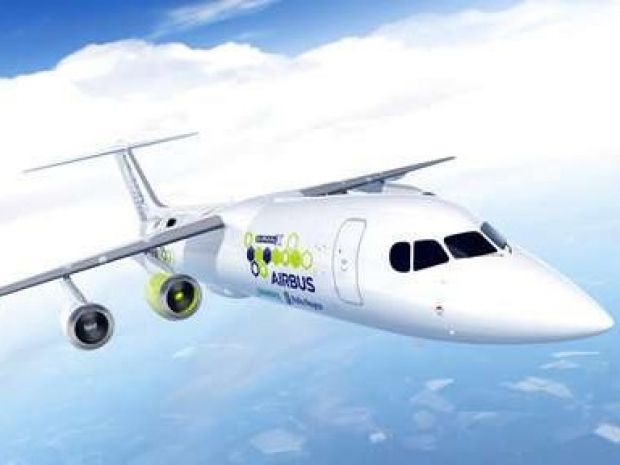
JetBlue has announced that it will offset carbon dioxide emissions from jet fuel for all domestic flights beginning in July 2020, making it the first major US airline to take the step toward reducing its contribution to global warming.

From 2020, British Airways will become the first UK airline to offset carbon emissions on all domestic flights. Customers on domestic flights will have their carbon emissions offset by the airline and invested in carbon reduction projects around the world.

It's challenging to electrify aviation using batteries or fuel cells in part because of the weight restrictions on aircraft, so liquid biofuels have the potential to play a big role in greenhouse gas emissions reductions.

Etihad Airways has become the world's first airline to fly a commercial flight using locally produced sustainable fuel derived from plants grown in saltwater.

This hybrid hyper-efficient aircraft could be the future of low-carbon travel, being pushed through the skies by four little diesel engines in the present configuration, but which can be replaced with electric motors.

It'll only have nine seats. But the low cost carrier expects larger electric planes in service by 2027.

This electric plane startup has just received its first order from a California-based jet charter company – and critics believe that it may usher in a whole new era of sustainable air travel in the United States.

JetBlue airlines has just announced the success of their 10-year mission to reduce their carbon footprint and promote sustainability by fighting the effects of climate change.

Norway said on Thursday it wants to buy electric passenger planes in the coming years to help slow climate change, building on its success with big tax breaks that have made it the world leader in electric car sales.

On Monday, a Qantas flight took off from Los Angeles, US to Melbourne, Australia burning 90-percent regular jet fuel and 10-percent mustard seed oil biofuel.

Electric vehicles accounted for 50 percent of new car sales in Norway in December and now the country hopes “to be the first in the world” to switch over to electric air transportation.

The E-Fan X will offer partially electric powered flights that are cheaper, quieter, and more sustainable.

Creating lighter yet powerful engines is just one way the aviation industry is trying to reduce its environmental impact.

The companies said they were looking ahead to the European Union's long-term goals of reducing CO2 emissions from aviation by 60 percent.

Qantas recently announced it will operate the world’s first bio-fuel flight between the United States and Australia. The Los Angeles to Melbourne flight will take place early next year.